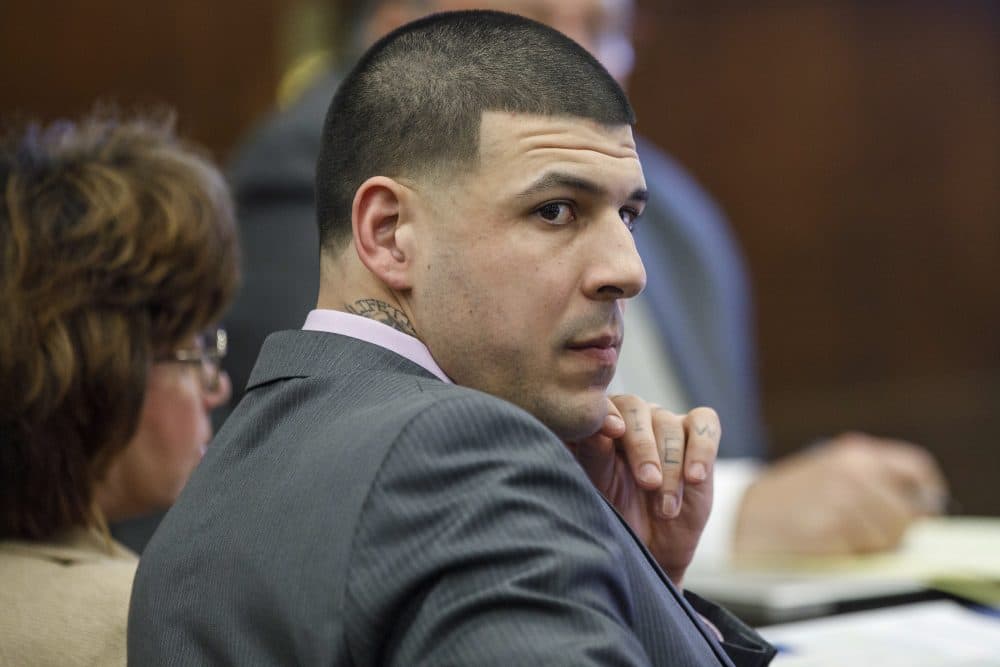Advertisement
Hernandez Death Ruled A Suicide; Brain To Be Released To BU For CTE Research

Aaron Hernandez's death has been officially ruled a suicide, and his brain will now be released to Boston University for research, as his family requested.
The former New England Patriots star, who was serving a life sentence for the 2013 murder of Odin Lloyd, was found by corrections officers hanging by a bed sheet in his cell at Souza-Baranowski Correctional Center in Shirley on Wednesday morning.
The autopsy performed by Chief Medical Examiner Dr. Henry Nields concluded that the manner of death was suicide and the cause was asphyxia by hanging.
"There were no signs of a struggle, and investigators determined that Mr. Hernandez was alone at the time of the hanging," according to a joint statement Thursday afternoon from the Worcester Country District Attorney's Office, Massachusetts State Police and the state public safety secretary.
Investigators found three handwritten notes next to a Bible in his cell, according to the statement, which did not detail the contents of the notes.
Hernandez's brain will be released to BU's Chronic Traumatic Encephalopathy Center, which researches the degenerative brain disease sustained by those with repetitive brain trauma, according to the joint statement. While the Office of the Chief Medical Examiner released Hernandez's body on Wednesday, they withheld some tissue, including his brain, until they declared the cause of death.
Earlier on Thursday, Hernandez's attorney Jose Baez said the Office of the Chief Medical Examiner was refusing to turn over the football player's brain.
"If it's not preserved properly, they won't be able to take proper specimens and we won't be able to get the information and the knowledge we want," Baez said to reporters. "It is literally a destruction-of-evidence issue, and that is the problem we're having here."
With reporting by WBUR's Fred Thys and Amy Gorel